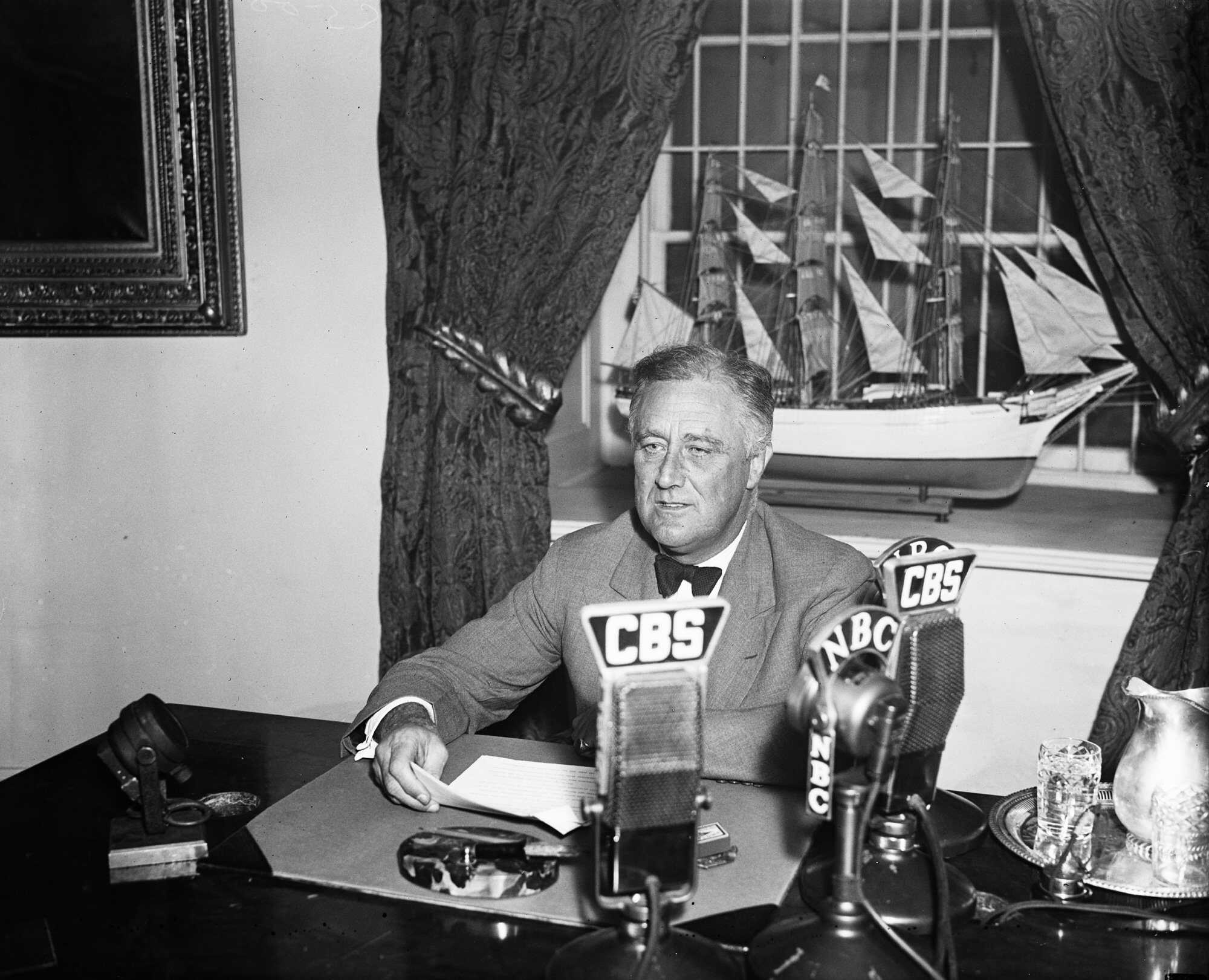
Most U.S. presidents stick to two terms in office. It’s just how things go. But Franklin D. Roosevelt — or FDR as we all know him — didn’t just go for a third term. He went for four.
So what made him the exception?
Let’s break it down.
Was That Even Allowed?
Yep. Back then, it wasn’t against the law. There wasn’t a rule limiting presidents to two terms — just an unspoken tradition set by George Washington. Every president after him followed it… until FDR came along.
The Country Was in Crisis (Twice)
FDR was first elected in 1932, right in the middle of the Great Depression. The economy had crashed, people were out of work, and things felt hopeless. Roosevelt stepped in with bold ideas — the New Deal, job programs, bank reforms — and gave people a reason to believe things could get better.
Then, by 1940, the world was on edge. World War II was heating up, and even though the U.S. hadn’t entered the war yet, it was clear something big was coming. Americans didn’t want to gamble on someone new.
That’s why FDR was elected again. He was the guy they trusted to steer the ship.
A Fourth Term? Here’s Why That Happened
By 1944, the U.S. was deep in WWII. The war wasn’t over yet, and again — voters wanted stability. FDR, though not in the best health, ran for a fourth term and won.
Sadly, he passed away just a few months into it, in April 1945. But by then, he’d already made history.
Why Can’t Presidents Do That Now?
After FDR’s death, Congress decided it was time to make things official. In 1951, the 22nd Amendment was added to the Constitution, limiting presidents to two terms max. No exceptions.
Quick Answers to Common Questions
- Why did FDR serve so many terms?
Because the U.S. was going through two major crises, and people wanted a steady hand on the wheel. - Was it illegal at the time?
Not at all. There was no law stopping him — until after his presidency. - Could it happen today?
Nope. The 22nd Amendment put a hard stop to that.
What Makes FDR So Unique?
He wasn’t just the longest-serving president — he was the right leader at the right time. His voice on the radio, his confidence, his plans — they helped hold the country together during some of its darkest years.
Love him or not, FDR changed the role of the president forever.
What Else Did FDR Do That Was So Game-Changing?
Franklin D. Roosevelt didn’t just stay in office — he transformed it.
Before him, the presidency was seen more as a background role. But FDR brought it to the forefront. Through his famous Fireside Chats, he spoke directly to Americans over the radio — calming fears, explaining policies, and building trust in a way no president had done before.
He also massively expanded the government’s role in people’s lives through the New Deal — with programs like:
- Social Security (still helping millions today)
- Public works projects that built roads, bridges, and schools
- Regulations that kept banks and the stock market in check
He made the federal government a hands-on force in everyday life — something that shaped U.S. politics for generations.
But Not Everyone Agreed With Him
While many admired FDR, not everyone was on board with his policies or four terms. Some critics thought he had too much power and worried about the future of democracy.
That’s why the 22nd Amendment wasn’t just about Roosevelt — it was about making sure no one person could stay in power for too long again.
How Did FDR’s Legacy Change the Presidency?
After FDR, presidents had bigger shoes to fill — literally and symbolically. His leadership style, use of media, and bold decisions redefined what Americans expect from their leaders.
And even today, during moments of national crisis, presidents are often measured by how they compare to FDR.
Final Thoughts
So, why did FDR serve four terms as president?
Because America needed a steady hand — during the Great Depression and World War II. The people trusted him, voted for him again and again, and he delivered.
Love him or criticize him, one thing’s clear: Franklin D. Roosevelt reshaped the presidency and changed American history — one term at a time.








